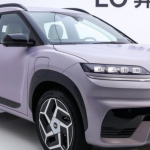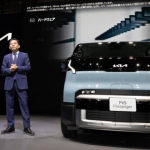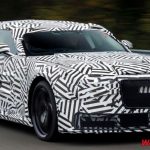In a bold move to protect its rapidly growing automotive industry, China has launched a sweeping crackdown on online car slander and disinformation. The campaign, initiated in September 2025, targets malicious content, exaggerated advertising, and defamatory posts that have plagued social media platforms and disrupted fair competition among automakers. With six major government agencies joining forces, this initiative marks a significant shift in how digital misconduct is policed in one of the world’s largest auto markets.
🚨 The Rise of Online Auto Disinformation
China’s automotive sector—especially its electric vehicle (EV) market—has seen explosive growth in recent years. With brands like BYD, Li Auto, and MG gaining global attention, competition has intensified. Alongside this boom, however, came a surge in online disinformation.

Social media platforms such as Douyin (China’s version of TikTok) have become battlegrounds for rival companies and influencers. False claims, misleading crash videos, and rumors of financial instability have circulated widely, often damaging reputations and affecting sales. In one notable case, Li Auto shared a video showing its SUV colliding with a truck from Dongfeng Liuzhou Motor. While the SUV appeared to escape with minimal damage, the truck was severely wrecked—prompting backlash and an apology from Li Auto.
🛡️ Government Steps In: A Coordinated Campaign
Recognizing the threat to industry integrity, six Chinese government bodies—including the Ministry of Industry and Information Technology (MIIT), Cyberspace Administration, and the Ministry of Public Security—issued a joint “Notice on Special Rectification of Disorder in the Online Auto Industry.” This three-month campaign aims to purge false advertising, illegal profiteering, and malicious slander from digital platforms.
The initiative is not just about protecting companies—it’s about restoring consumer trust and ensuring fair competition. Authorities have pledged to strengthen coordination, monitor online content more aggressively, and penalize offenders with fines, public apologies, and even surveillance.
💼 Automakers Fight Back
China’s carmakers aren’t waiting for regulators to act—they’re launching their own countermeasures. BYD, for instance, has filed lawsuits against 37 influencers who spread bankruptcy rumors. One blogger was ordered to pay a fine of $14,000 and issue a public apology. Another was penalized for falsely claiming BYD was financially unstable.
To further combat slander, BYD has created an in-house “Anti-Fraud Department” and is offering rewards of up to 5 million yuan (approximately $703,000) for whistleblowers who report defamatory content. MG has followed suit with similar incentives, signaling a zero-tolerance stance toward online attacks.
📱 The Role of Social Media
Social media’s influence in shaping public perception cannot be overstated. In 2023, a Douyin influencer with over 5 million followers posted videos mocking drivers of a particular EV startup. Though the account was suspended in 2024, the damage had already been done.
These platforms, while powerful tools for engagement, have also become conduits for misinformation. The challenge lies in balancing freedom of expression with accountability. China’s crackdown aims to draw that line more clearly, especially in sectors where reputational harm can have real economic consequences.
🧠 Implications for Consumers and Creators
For consumers, the crackdown could lead to more reliable information and fewer misleading claims. It may also encourage automakers to focus on genuine innovation and service rather than viral marketing tactics. For content creators and influencers, however, the message is clear: verify before you amplify.

The campaign raises important questions about digital ethics, transparency, and the responsibilities of online personalities. In an age where a single post can sway public opinion, accuracy and integrity are more critical than ever.
🌍 Global Echoes
China’s move may inspire similar actions in other countries grappling with online disinformation. As EV adoption grows worldwide, so does the need for credible information and fair competition. The crackdown also signals China’s intent to lead not just in manufacturing but in setting standards for digital conduct in the auto industry.
Final Thoughts
China’s hunt for online car slander is more than a regulatory sweep—it’s a cultural shift. It reflects the nation’s desire to protect its industrial achievements, foster healthy competition, and hold digital voices accountable. As the campaign unfolds, it will likely reshape how automakers, influencers, and consumers interact in the digital space.
In the end, the road to a trustworthy automotive ecosystem begins with truth. And China is making sure that road is well-paved.

Hello, my name is Muskan Kumari and I am an experienced Digital Marketer. I have been blogging for the last 3 years and I have special interest in SEO. Here I give you easy bikes and writes easy-to-understand reviews and news about the latest bikes, helping readers choose the best options.. My aim is to always provide you with accurate, new and useful information.










